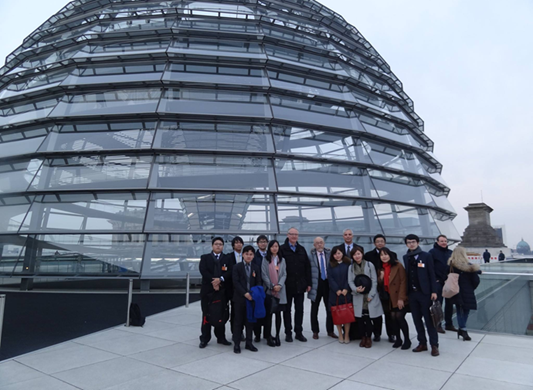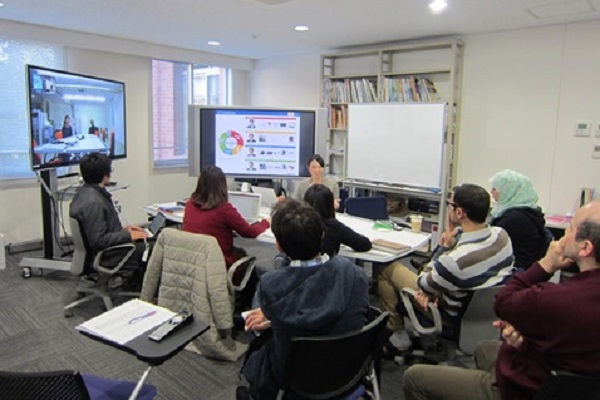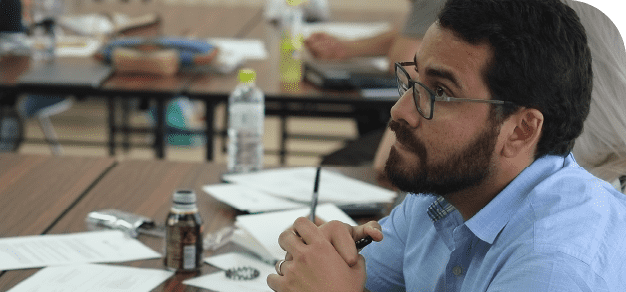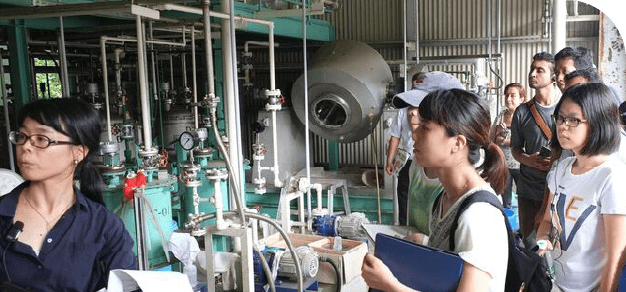GRM Students’ Reports
GRM Program Completion Report
Graduate School of Global Studies Abdalrahman Mohamed Migdad
2018/08/08
The Idea of Global Resource Management (GRM) was inspirational and helped in formulating my Doctoral thesis research ideas that also envision global resources to resolve global issues that relate to the human’s economic insecurities. The interconnectedness of the threats that face people everywhere necessitates a global bird-eye view to ensure the presentation of better and more sound solutions to existing community threats and simultaneously present solutions that address people’s needs while taking into consideration cultural, religious, and geographical difference. The pleasure in the GRM program was in the fact that it did not change my attitudes in generating research ideas, it enhanced and built what I already possessed. I never saw things in isolation, but always nature my ability to see the holistic view. The connection I had with the program prior to its start date for me which was October 2015 was strong because I found a program that adopts an “all-else-included” approach and doesn't isolate other variables to make the job easy and the results acceptable. In real life, the task is not easy, and the results will not please everyone.
During the past three years, I engaged in many courses and programs carried out by the GRM. The first course was “GRM Organizing International Conference Symposium” where students had the opportunity to organize an international conference, invite guests from all over the world, and facilitate the conference sessions over two days. That was a kick-starter, a valuable one that set the stage and gave the impression of the worthiness of the program. The second set of courses were the “On-Site Practice” courses that featured real-life problem solving and teamwork. It was an opportunity to assess problems, engage with the locals, and present solutions based on facts. Thirdly, the “Joint Seminar” courses were also an eye opener to some of the problems faced by marginalized communities in developing countries.
The fourth set of courses were from the science and engineering part of the GRM program; those were also remarkably important. A lesson learned here stresses the importance of a holistic view to problem-solving. It is impressive to see how technology and engineering can play a fundamental role in alleviating poverty, and making people’s lives better. The fifth set of courses took students beyond national borders. The GRM’s generous funding to student’s fieldwork and internships was invaluable to students; those courses enabled students to study their research problems deeper, extract interesting findings, meet more people, get closer to the scene, and present novel ideas in their discipline.
Through the GRM fieldwork and internships, I managed to visit Malaysia for a number of times and also managed to visit Turkey. In Malaysia, I conducted an internship with the “International Sharia Research Academy (ISRA) for Islamic Finance.” There, I also attended conferences on monetary justice and how to solve the economic problems in different communities. Furthermore, I conducted fieldwork and many interviews that served me when writing my thesis. In Turkey, I participated in two conferences where I presented different papers and conducted interviews. Furthermore, I visited Turkish Universities. Namely, Istanbul Sabahattin Zaim University where I expanded my professional network and established grounds for future cooperation.The value in such global exposure lies in the professional connections one makes, the places one visits, and the cultural understanding one gains. For me, the content of the GRM program serves well the idea of preparing leaders that have the ability to see the big picture and the capacity to recognize details.
With regard to my Doctoral thesis, I also followed an “all-else-included” approach where I learned more about Human Security (HS) and derived the term Human Economic Security (HES). The significant addition I made was to present the discussion from an Islamic worldview noting that the discussion on HS is a global one. My interest was to address the economic insecurities in Muslim communities, Muslims who represent one-quarter of the world population. Since my focus on the economic insecurities in Muslim communities, I also elaborated on the Islamic economic system and what the world knows today as Islamic Finance. The third component of my research zoomed in to see the details of one particular case. I employed the case of Malaysia which has multiple cultures and religions, but the majority are Muslims, and the country is also the leader of Islamic finance in the world. Malaysia had also suffered from economic inequality and national unity in the past decades and the aftermath is still present today but in the shadows. Bringing HS & HES with Islamic finance and reflecting on Malaysia was a challenge, but one worth taking on. To me, my Doctoral thesis was a practice of how global challenges could be addressed and how global resources could be utilized.
What is in common between the GRM Program and my research as presented in my Doctoral thesis lies in the fact that both value a holistic view, and then start with the details to recognize the differences. Recognising the differences is important because no solution fits all. This makes the challenge greater, but it is also the reality we live.
What the GRM program had to offer was essential for students who seek careers in international organizations, or those who seek leadership positions in any career path. With the program's offerings that include organizing international conferences, on-sight practice, fieldwork, internships, and countless seminars that feature professionals and academicians from all over the world; this leader buildup becomes possible. In my personal experience, I capitalized on all the GRM program courses that covered scientific topics in engineering and infrastructure, and topics from social sciences. However, regardless of the generous offerings the program presents to students, only serious and engaged students are successful in achieving the goals of the program that goes beyond the lifespan of the program itself.






